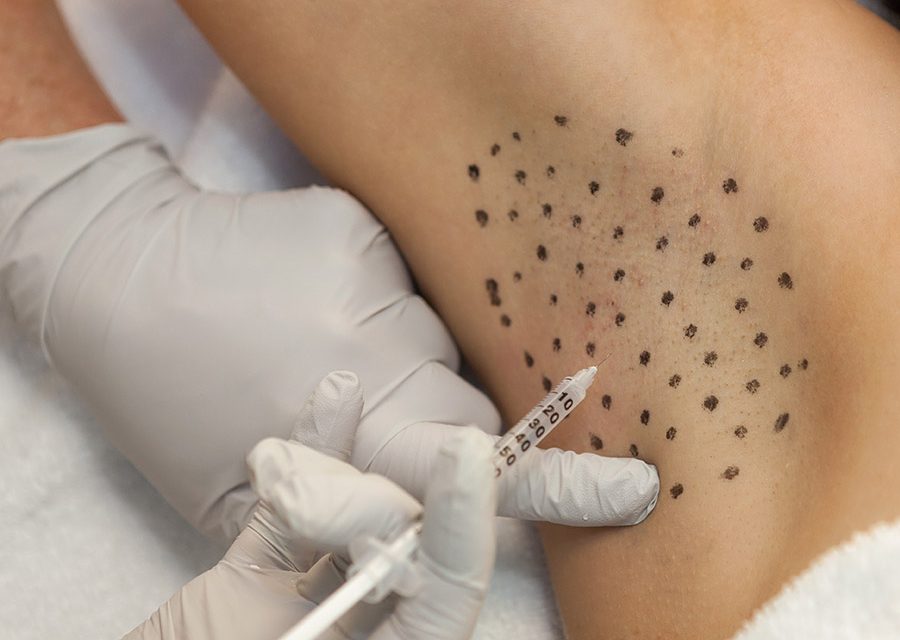Hyperhidrosis is a term used to describe excessive sweating. it affects about 3% to 5% of the population in the whole planet.
Sweating is a natural process that helps regulate body temperature and remove metabolic by-products.
Increased sweating can occur at any age and does not depend on gender. Although women are more likely to go to the doctor with this problem. Perhaps this is due to the fact that they tend to be more concerned about their appearance and self-image.
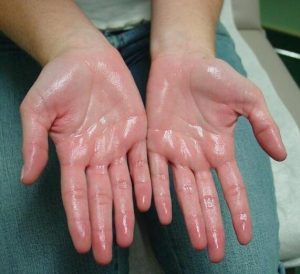
Based on the occurrence, there are two types of hyperhidrosis:
primary and secondary.
Primary, or idiopathic, hyperhidrosis is a congenital feature that occurs for unknown reasons. As a rule, it manifests itself already in childhood or adolescence, and in most cases, it is local: the activity of sweat glands in the underarms, palms, and feet increases.
Secondary hyperhidrosis is a condition that occurs as a result of taking certain medications, pregnancy, menopause, Obesity, gout, rheumatoid arthritis, cancer, diabetes mellitus, cardiovascular disorders, respiratory failure, infectious processes, endocrinopathies – all these conditions can be accompanied by excessive sweating.
Primary hyperhidrosis can be treated with cosmetic and body care products such as deodorants and antiperspirants, and botulinum toxin injections but in some cases, only surgical intervention could solve the problem.
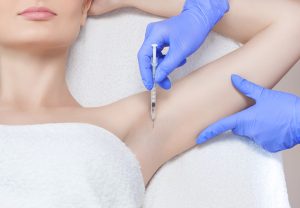
All deodorants and antiperspirants have different actions and tasks.
The deodorant eliminates only unpleasant odors. It contains fragrances that mask the smell of sweat, and bactericidal substances that inhibit the vital activity of bacteria and thus also weaken the smell. The antiperspirant contains aluminum salts and works to narrow the sweat glands, suppressing or blocking the process of sweating. Despite popular belief, antiperspirants should not be applied in the morning, but in the evening before bedtime. At this time, the sweat glands are less active, so the active substances easily enter the excretory ducts and remain in them, showing their properties to the maximum.
Botulinum toxin blocks the nerve signal that stimulates the sweating glands to excrete sweat.it is considered one of the most effective methods to prevent the excess of sweating and it can last up to 6 -10 months.
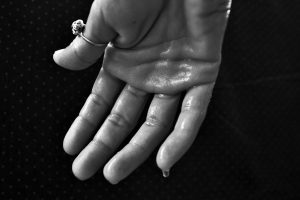
Surgery can be done when the normal methods would work. in a certain way, a surgeon can cut the nerve connected to a certain area to stop the stimulating signals.
In the cases of secondary hyperhidrosis, therapy will be directed to eliminate the cause of the disease. For example, a doctor may prescribe hormones or other medications to correct hormonal imbalances or advise the patient to lose weight, etc.
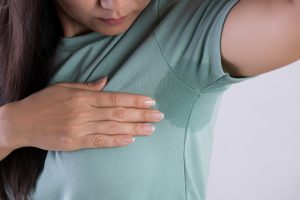
Ways to help reduce excessive sweating:
Contact us now to schedule an appointment!
Specialist Dermatologist-Cosmetologist

